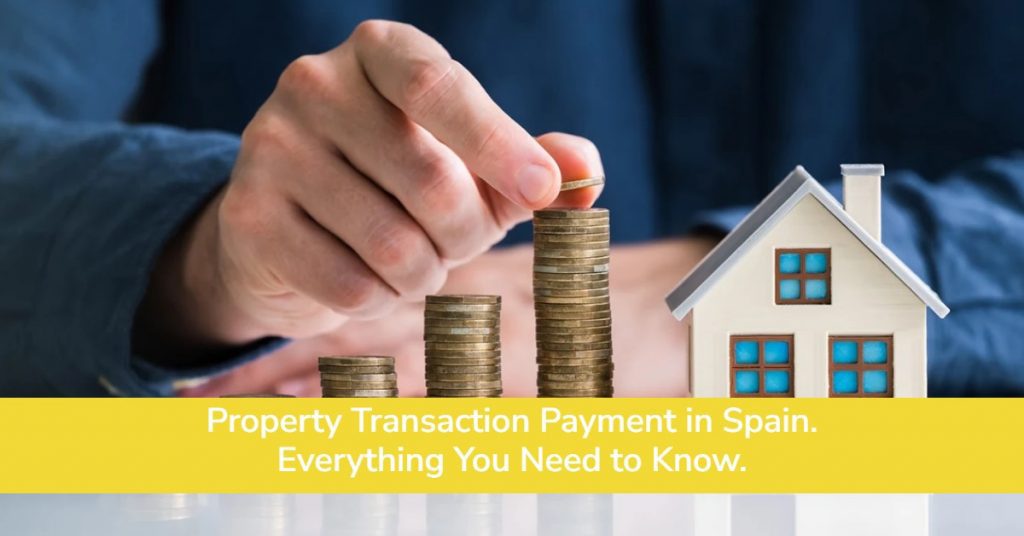When buying or selling a property in Spain, especially when one of the parties is foreign, problems may arise when making payments. These issues can generate confusion and tension between buyer and seller if they are not managed correctly. In this week’s article, we analyse everything you need to know about the property transaction payment in Spain.
Bank Transfers.
Probably the most common form of payment. Both when signing a private contract or reservation, and when completing the transaction before a Notary Public.
When both the buyer and the seller have a bank account in Spain, transfers are usually quick and (generally) free of charges. However, when one of the parties is foreign or resides outside the European Union (United States, United Kingdom, etc.) and does not have a Spanish account, problems may arise. Bank fees are usually very high, there may be issues with exchange rates, and so on. In these cases, it is essential to make clear in the contract who is responsible for these charges.
Furthermore, when payment is made by bank transfer on the day of signing the deed in the Notary’s Office, it is possible that the money will not reach the seller until 1-2 days later. This may cause discomfort or mistrust in some sellers, who prefer not to sign until they have received the funds in their account.
Nominative Banker’s Draft.
The immediacy and security of nominative banker’s cheques make them one of the preferred payment methods at the signing of the notarial deed. Personal cheques should always be avoided, and a banker’s cheque issued by a bank that guarantees its coverage should always be used.
However, if you do not have a bank account in Spain and intend to deposit a banker’s draft into your bank account abroad, caution is advised. In practice, the clearance of a foreign banker’s cheque can take several weeks. There are also commissions, correspondent bank fees, and other expenses.
Currency Exchange Companies.
There are companies specialised in currency exchange that hold bank accounts in Spain with Spanish IBANs. This can greatly facilitate the reception of money for sellers who do not have a bank account in our country.
It is important to verify that these companies are authorised by the Bank of Spain as Electronic Money Institutions (E.D.E.), in accordance with Law 21/2011 and Royal Decree 778/2012. These companies generally also offer a more favourable exchange rate than the one automatically applied by banks.
Payment Through the Notary: Escrow or Deposit Deed.
In the Costa Blanca area, it is very common for the property transaction payment to be done through the Notary. That is, a few days before signing, the buyer sends the money to the Notary’s bank account. On the day of the deed, it is the notary who transfers the money to the seller.
This method does not guarantee immediate payment, but it provides security and peace of mind, as a public officer (the Notary) acts as an intermediary.
Conclusion.
The property transaction payment is a critical point in any real estate operation. Planning how it will be made and choosing secure methods allows problems, delays, and conflicts between the parties to be avoided. At White Baos Lawyers, we are experts in property transactions. Do not hesitate to contact us for professional legal advice.
The information provided in this article is not intended to be legal advice but merely conveys information relating to legal issues.
Carlos Baos (Lawyer)
White & Baos.
Tel: +34 966 426 185
E-mail: info@white-baos.com
White & Baos 2025 – All Rights Reserved.
